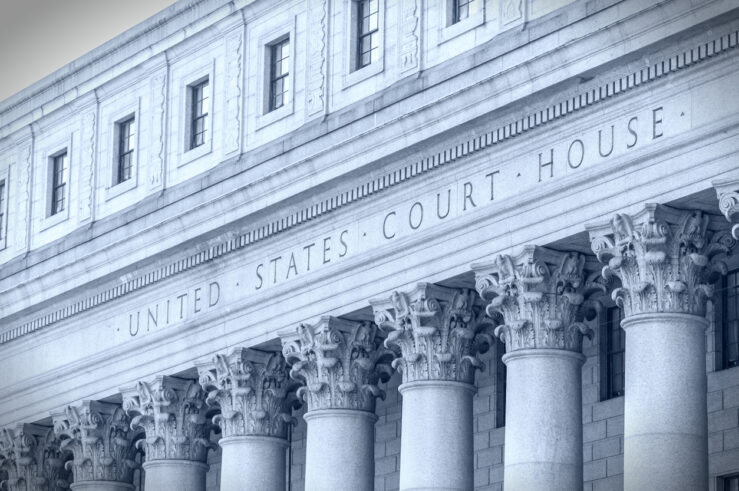Showing archive for: “Sherman Antitrust Act”
AICOA Is Neither Urgently Needed Nor Good: A Response to Professors Scott Morton, Salop, and Dinielli
Earlier this month, Professors Fiona Scott Morton, Steve Salop, and David Dinielli penned a letter expressing their “strong support” for the proposed American Innovation and Choice Online Act (AICOA). In the letter, the professors address criticisms of AICOA and urge its approval, despite possible imperfections. “Perhaps this bill could be made better if we lived in ... AICOA Is Neither Urgently Needed Nor Good: A Response to Professors Scott Morton, Salop, and Dinielli
FTC UMC Roundup – It’s Getting Hot in Here
Someone has turned up the heat on Congress. I’m not saying Congress is responsible for the extreme heat being felt in much of the world this week – but I wouldn’t be surprised. With forward movement this week on both the CHIPS Act (with the Senate version partially resuscitating UCITA as well) and ADPPA. It ... FTC UMC Roundup – It’s Getting Hot in Here
Pushing the Limits? A Primer on FTC Competition Rulemaking
Since its founding in 1914, the Federal Trade Commission (FTC) has held a unique and multifaceted role in the U.S. administrative state and the economy. It possesses powerful investigative and information-gathering powers, including through compulsory processes; a multi-layered administrative-adjudication process to prosecute “unfair methods of competition (UMC)” (and later, “unfair and deceptive acts and practices ... Pushing the Limits? A Primer on FTC Competition Rulemaking
DOJ’s Threatened Reign of Error: Proposed Criminal-Monopolization Prosecutions
The Biden administration’s antitrust reign of error continues apace. The U.S. Justice Department’s (DOJ) Antitrust Division has indicated in recent months that criminal prosecutions may be forthcoming under Section 2 of the Sherman Antitrust Act, but refuses to provide any guidance regarding enforcement criteria. Earlier this month, Deputy Assistant Attorney General Richard Powers stated that ... DOJ’s Threatened Reign of Error: Proposed Criminal-Monopolization Prosecutions
Hunting for Labor-Market Monopsonies (and Giffen Goods)
If you wander into an undergraduate economics class on the right day at the right time, you might catch the lecturer talking about Giffen goods: the rare case where demand curves can slope upward. The Irish potato famine is often used as an example. As the story goes, potatoes were a huge part of the ... Hunting for Labor-Market Monopsonies (and Giffen Goods)
How the FTC Could, but Won’t, Use Its Rulemaking Authority to Allow Aftermarket Parts
We used to have a robust aftermarket for non-original equipment manufacturer (OEM) automobile repair parts and “independent” repair services, but car companies have increasingly resorted to design-patent protection to prevent competition in the supply of cosmetic repair parts such as bumpers, hoods, panels, and mirrors. The predictable and intended consequence has been to raise prices ... How the FTC Could, but Won’t, Use Its Rulemaking Authority to Allow Aftermarket Parts
Rules Without Reason
In his July Executive Order, President Joe Biden called on the Federal Trade Commission (FTC) to consider making a series of rules under its purported authority to regulate “unfair methods of competition.”[1] Chair Lina Khan has previously voiced her support for doing so.[2] My view is that the Commission has no such rulemaking powers, and ... Rules Without Reason
NEW VOICES: FTC Rulemaking for Noncompetes
On July 9, 2021, President Joe Biden issued an executive order asking the Federal Trade Commission (FTC) to “curtail the unfair use of noncompete clauses and other clauses or agreements that may unfairly limit worker mobility.” This executive order raises two questions. First, does the FTC have the authority to issue such a rule? And ... NEW VOICES: FTC Rulemaking for Noncompetes
The FTC Abandons the Free Market
In December 2021, the Federal Trade Commission (FTC) released its statement of regulatory priorities for 2022, which describes its intention to expand the agency’s rulemaking activities to target “unfair methods of competition” (UMC) under Section 5 of the Federal Trade Commission Act (FTC Act), in addition to (and in some cases, presumably in place of) ... The FTC Abandons the Free Market
Chevron and Administrative Antitrust, Redux
[Wrapping up the first week of our FTC UMC Rulemaking symposium is a post from Truth on the Market’s own Justin (Gus) Hurwitz, director of law & economics programs at the International Center for Law & Economics and an assistant professor of law and co-director of the Space, Cyber, and Telecom Law program at the ... Chevron and Administrative Antitrust, Redux
Can the FTC Use Rulemaking to Change Antitrust Law?
FTC Rulemaking Power In 2021, President Joe Biden appointed a prolific young scholar, Lina Khan, to chair the Federal Trade Commission (FTC). Khan strongly dislikes almost every element of antitrust law. She has stated her intention to use notice and comment rulemaking to change antitrust law in many ways. She was unable to begin this process ... Can the FTC Use Rulemaking to Change Antitrust Law?
Application of the Proper ‘Outer Boundary’ of Antitrust Liability for Alleged Refusals to Deal in New York v Facebook
Introduction The States brought an antitrust complaint against Facebook alleging that various conduct violated Section 2 of the Sherman Act. The ICLE brief addresses the States’ allegations that Facebook refused to provide access to an input, a set of application-programming interfaces that developers use in order to access Facebook’s network of social-media users (Facebook’s Platform), ... Application of the Proper ‘Outer Boundary’ of Antitrust Liability for Alleged Refusals to Deal in New York v Facebook










